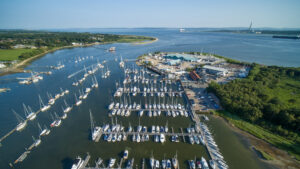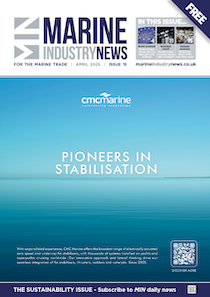Are marinas getting smarter?
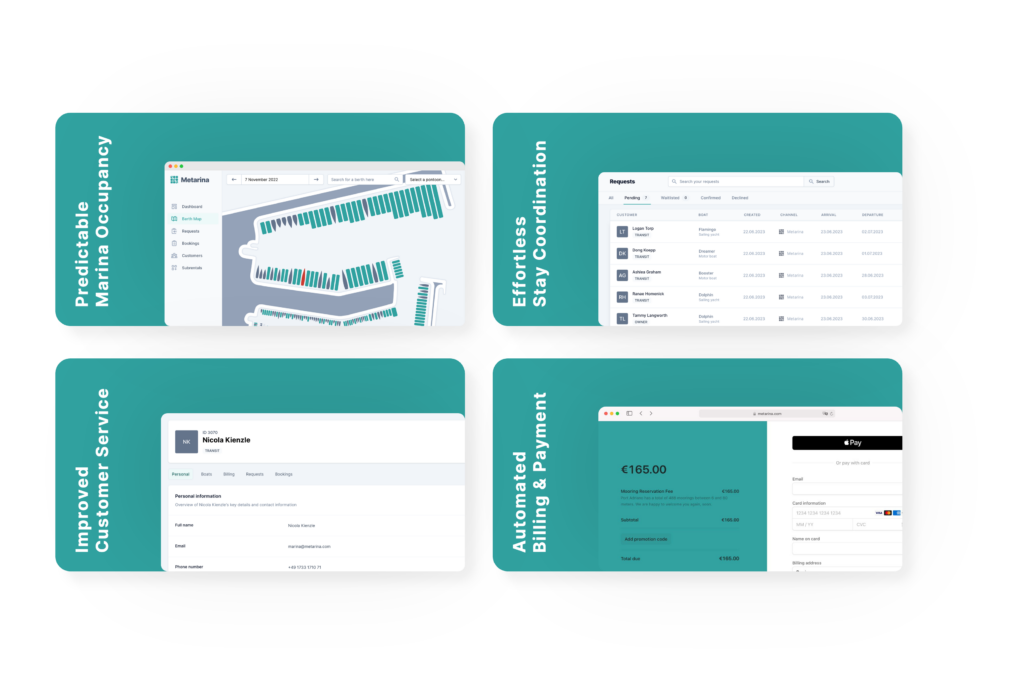
MIN looks at the rise and usage of booking technologies and apps within smart marina.
Like all industries, the maritime sector is increasingly under the influence of a technological shift, and the transformative power of digital solutions is coming to the fore in smart marinas.
With the industry ushering in a younger generation of end users, this demographic shift is changing the leisure marine landscape and increasing demand for digital services. Across the sector, some marina groups have begun to launch mobile-optimised portals and apps, alongside an increase in third-party app partnerships, in a quest to respond to this rising demand and growing expectation.
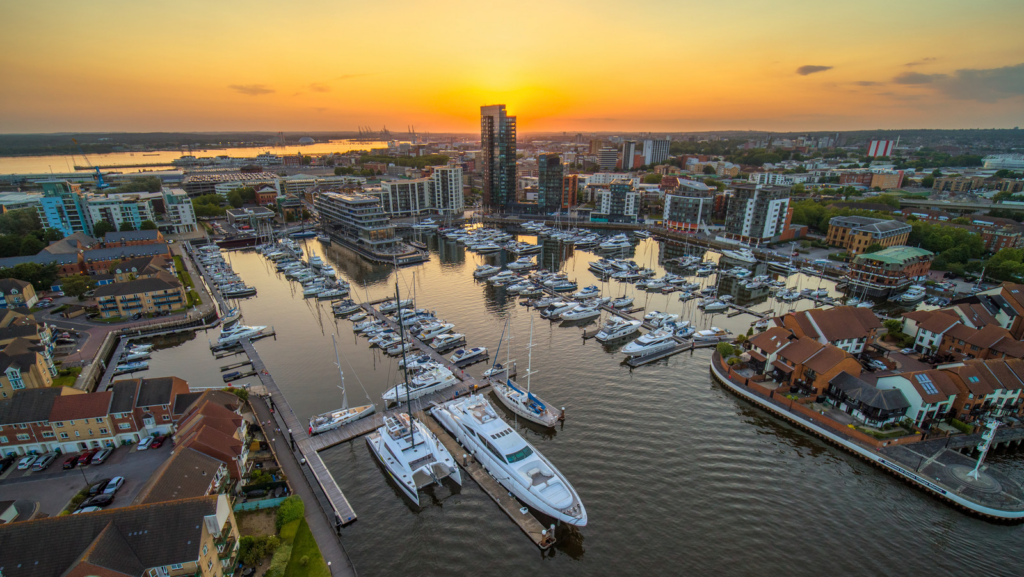
Marina apps on the rise
Edouard Fiess, cofounder of the marina booking app Navily, sheds light on the increased demand: “There is a change of mentality and a new generation entering boating that is used to immediate booking processes on platforms such as Airbnb, UberEats, etc. All these apps give them what they want easily and quickly, so they are used to using technology.”
Marina groups are responding to this growing appetite for digital solutions. Matthias Ghering, chief digital officer at D-Marin, comments on the centralised booking platform – D-Marin’s Premium Marinas app: “It is a solution that our customers want, and it enables us to provide an enhanced level of service. In 2022, approximately 30 per cent of transient bookings were already made, paid for, and invoiced online using our digital platform. This demonstrates the app’s effectiveness in streamlining the booking process and improving convenience.”
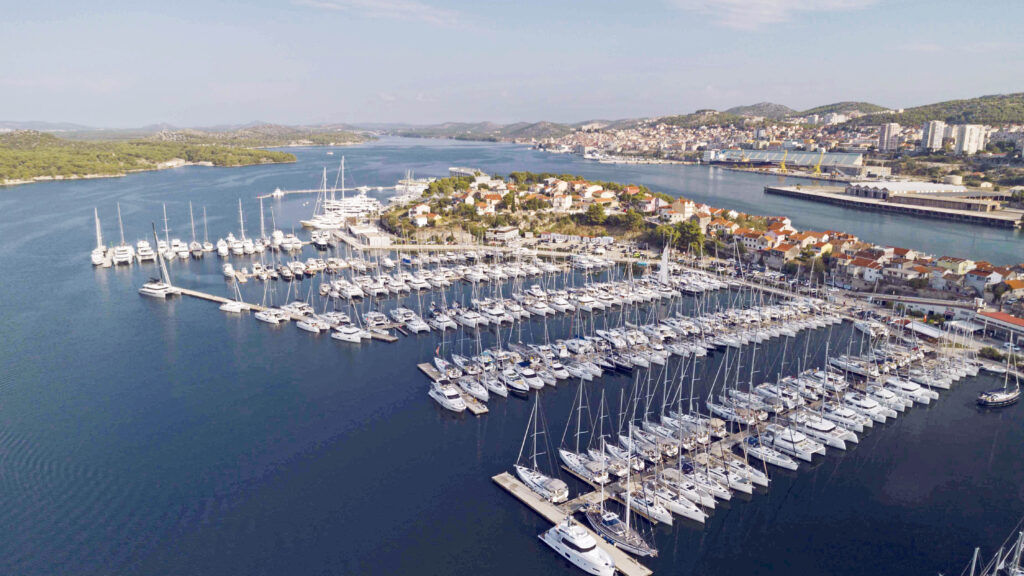
MDL Marinas has also increased its digitisation and has recently implemented a new, optimised platform to facilitate the demand for online bookings. Tim Mayer, sales and marketing director, explains: “Through the system, about 20 per cent of visitor bookings are booked online, and in terms of renewals, there is about a 60 per cent rate of those now booking online.”
Embracing digital booking solutions represents not only a paradigm shift for clients seeking heightened efficiency and an easier booking process but can also overhaul a marina business model, leading to enhanced efficiency and maximised occupancy. “Enquires that have come into MDL since the implementation of our new systems have increased by an average of about 23 per cent, and customer conversion has increased by an average of about 4 per cent,” says Mayer.
Ghering explains D-Marin launched its app as part of its ‘connected marina’ initiative: “D-Marin customers can use the app to remotely check in and create real-time bookings, as well as pay online, which in turn has significantly reduced waiting times and has had a demonstrable return on maximising marina occupancy. The app has been part of the driving force behind the overall occupancy rate of 93 per cent across the group.”
Meanwhile, utilising technology within booking can be seen across multiple smart marinas through third party technology. Fiess notes: “We started Navily in 2015 with about 20 marinas. Today, we have around 700 marinas utilising bookings through us. Our growth this year will increase by about 70 per cent of the volume of bookings we have done with each marina we have worked with. We know we are substantially increasing the volume, and once marinas begin to adopt our platform, it makes sense to run all their traffic through it as it is a centralised space to manage all bookings.”
The increasing capabilities in real-time availability, monitoring and surveillance are offering more interconnected real-time solutions that could transform the digital booking scene. Ghering continues: “D-Marin customers can use the app to check in remotely and create real-time bookings. The real-time availability enables customers to book a specific preferred berth in one of our marinas.” Mayer adds: “We have real-time availability of berths if someone is leaving an MDL marina to go to another; when they book into the other marina, it automatically frees their berth up for the period they are away.”
MDL Marinas has partnered with marine digitalisation firm Falco and its marina management software provider, Havenstar, to trial smart marina technology at its Queen Anne’s Battery marina. As part of its digital transformation, MDL is running a pilot programme using Falco’s Smart Marina wireless technology to detect occupancy in real time on the visitor pontoon at its Plymouth based marina.
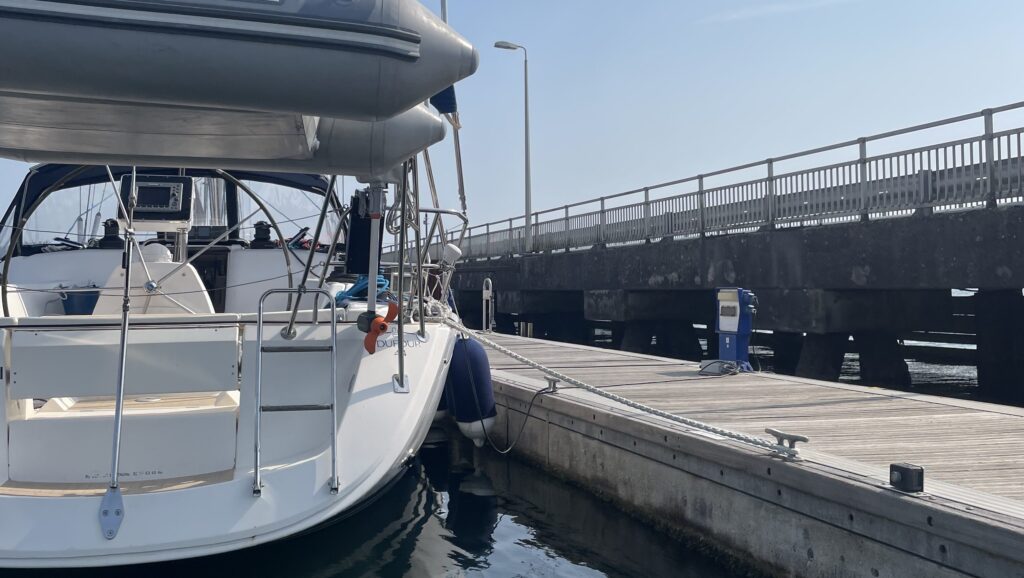
“Currently, our teams have to physically walk along the pontoons to check if a boat has left the marina, so it can take time to detect if a berth is available for visitors,” says Mayer. “Over the past year, we have had motion sensors put into berths, which allows real-time communication between those leaving and arriving. This smart technology improves efficiency around the availability of berths and triggers communication to that berth holder,” he adds.
This new digital tool will enable MDL to automate parts of its operational processes, maximising availability of visitor berthing and freeing up the marina teams to spend more time on the pontoons and meeting and greeting customers. The company hopes this will improve the quality of the marina experience for berth holders and customers alike.
“The real time data on boat movements will also provide us with a more accurate number of spaces available for visiting yachts at any one time,” adds Mayer.
Marina technology startups
Startups are also entering the digital smart marinas space with notable success. Metarina is building marina software that ‘bridges the gap between boaters and marinas’. The startup’s cofounder, Nicola Kienzle, explains: “Throughout the season (2023), we have managed to generate five-digit additional revenues for specific marinas after just a few months of onboarding them. They are now seeing the huge potential if they fully leverage the use of our digital solution.”
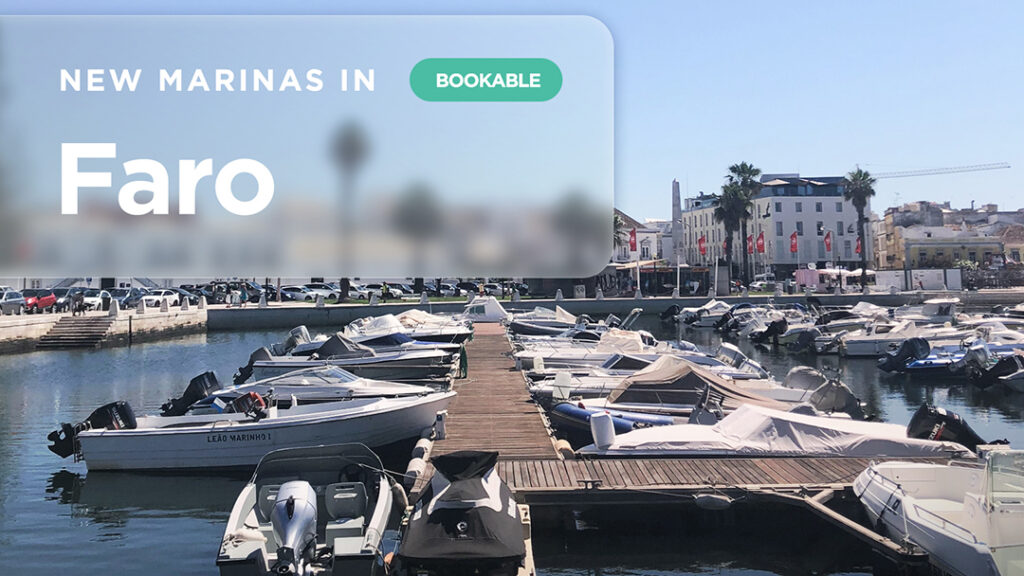
Kienzle believes the leisure marina industry needs to promote the power of new technologies. “This involves advocating a paradigm shift towards recognising technology as an enabler rather than a threat, and ensuring collaboration between technology providers and marina operators. As technology can only enhance the effectiveness of its users, Metarina places a strong emphasis on supporting marina teams to ensure that technology is used to its full potential.
“We’ve designed Metarina as a modular software solution, ensuring that it can be tailored to meet the unique requirements of different marinas.” According to Kienzle, big opportunities await progressive marina companies – mainly in the form of huge scope for operational and experiential improvements within their businesses that will not only make the lives of marina staff easier, but also increase boater satisfaction. “However, a significant challenge lurks in the form of resistance from individuals who are still entrenched in traditional methods and reluctant to embrace technological advances,” she adds.
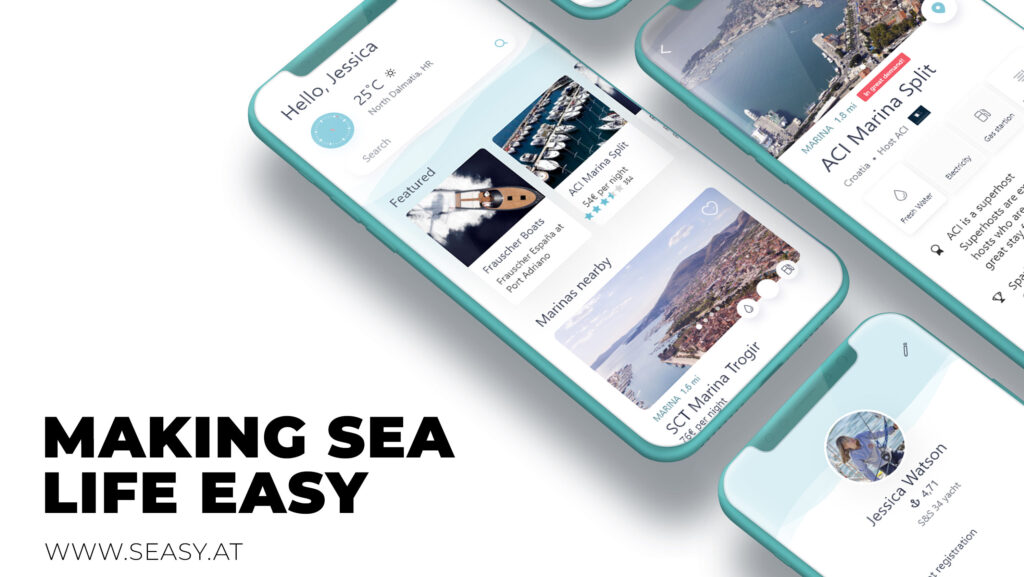
Austrian start-up Seasy launched a marina booking platform in 2020 and has experienced ‘record growth’ since its inception. The Seasy booking system is designed to enable hassle-free berth bookings across Europe, and currently has marinas signed up in 16 countries and regions, including Italy, Croatia and Spain. Niklas Baumgartner, CEO of Seasy, emphasises the benefit of enhanced customer service: “Online platforms can help with the strategic streamlining of information and directing customers through an online process is key to heightened customer satisfaction.”
According to Seasy, the number of active users on the platform is now at over 2,000 daily users in high season, and the number of berth bookings facilitated through the app has reached 12,000.
Marina market response
While some marinas are just beginning to trial digital booking technologies, others have launched apps for berth holders to manage various aspects of their accounts, intending to offer booking capabilities in the near future. Amy Parker, senior communications executive at Premier Marinas, explains: “We launched the [Premier Marinas] app because we wanted to offer more hands-on customer service in the marinas. Our team now has more time to patrol the pontoons, check lines and fenders and offer more on-the-ground assistance to berth holders.”
Jonathan Cook, group marketing manager at Yacht Havens, says: “We have certainly noticed an increase in demand for digitisation within our business over the past few years. As a result of this change in customer behaviour and our desire to meet customers’ needs, we will be launching MyYachtHavens next year [2024]. This is our customer portal where customers can manage and renew their berthing contract, pay invoices, manage electricity, request services and more.”
For those marinas embracing digitisation, it seems the results have been positive and helped streamline the businesses. D-Marin’s Gehring comments: “We believe the customer should have an effortless experience driven by digital touchpoints and innovations. The app elevates the customer experience by combining the advantages of digital innovations with our commitment to personalised service; it acts as a central hub that threads all of our digital solutions in one, easy-to-use place,” he adds.
Mayer paints the same picture at MDL: “Our goal in our digitisation process is to make an overall better experience for the customer and make MDL Marinas as customer-centric as possible, continuing improvement, optimisation and adding more online services as we go.” The human element While technology is undoubtedly proving influential, there is still a consideration toward the personalised connection.
Gehring notes: “The ability for customers to have direct contact with the team through the app strengthens the relationships between our marinas and customers, still maintaining a human touch that defines our premium service while being able to enjoy the benefits of remote digital booking.” Mayer reaffirms that MDL is not using digitisation to replace its bricks and mortar service. “These tools do not replace the fact that people can still speak to the team. It simply complements all our services. None of our offline services have been removed, allowing customers to choose whatever methods suit them best.” “Our goal is for sailors to go to the harbour office not for administrative reasons but to go and chat with the marina about what there is to do in the area, resulting in enjoying a more human approach by removing the constant document scanning and other logistics,” says Fiess.
Marinas of the future
Whether a system is developed specifically for a marina group or bookings are utilised through a third-party provider, increasing digitisation is enhancing the boating experience and smart marinas are here to stay. Integrating digital booking services continues to benefit the sector. From a customer standpoint, the ease and efficiency of marina logistics will continue to improve. Meanwhile, as marinas invest in more smart technologies, they can improve systems, ultimately maximising occupancy and customer service catering to the next generation.



